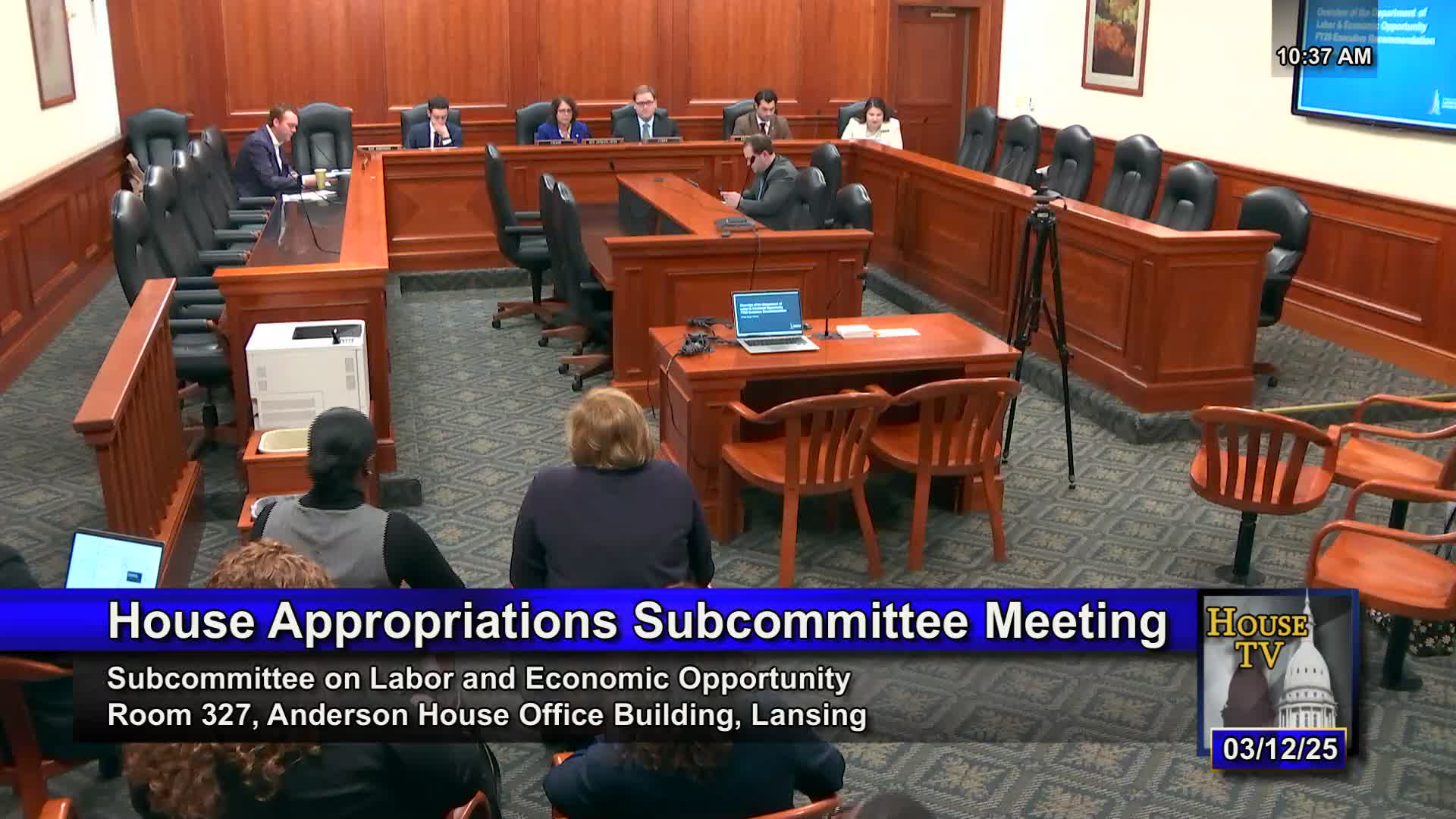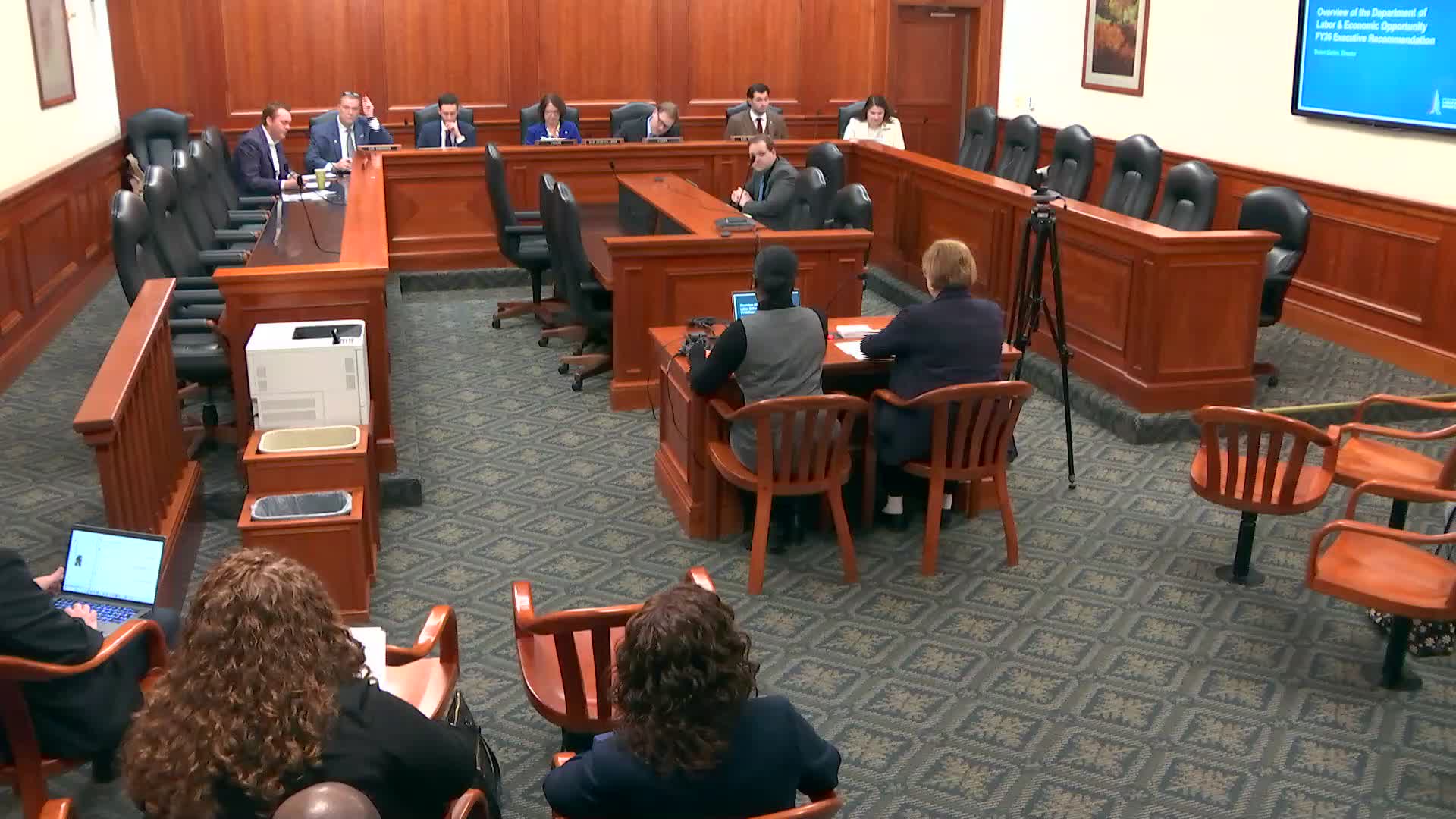Article not found
This article is no longer available. But don't worry—we've gathered other articles that discuss the same topic.

Subcommittee approves minutes and excuses absent members by unanimous consent

MEDC presents 'Make It in Michigan' results and FY26 requests for talent teams, site readiness and Pure Michigan funding

